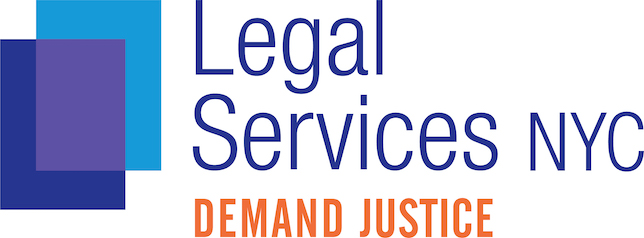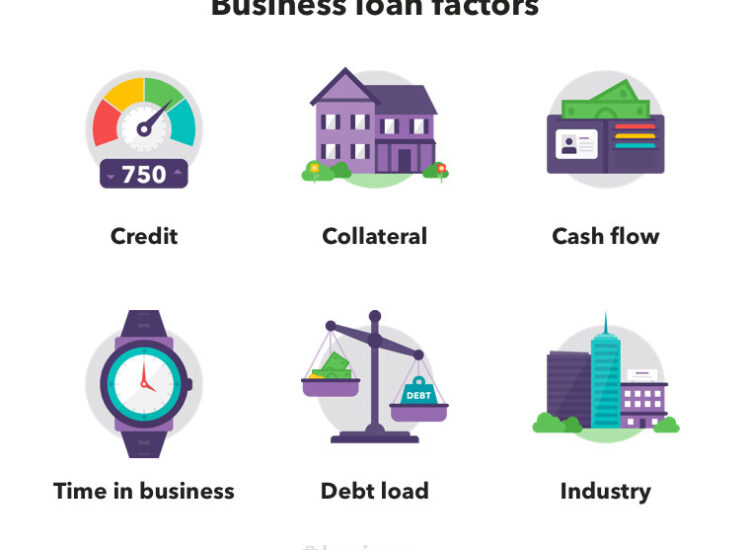Millions struggle with overwhelming debt, juggling multiple payments and high interest rates. Understanding loan consolidation meaning is key to simplifying this complex situation. Loan consolidation combines various debts into a single, more manageable loan, potentially reducing monthly payments. However, this simplification isn’t always straightforward it can lead to extended repayment periods and potentially higher overall interest costs. Careful consideration of the nuances is crucial for making informed decisions.
Toc
- 1. What is Loan Consolidation Meaning?
- 2. Related articles 01:
- 3. Personal Loan Consolidation Meaning: A Millennial’s Guide
- 4. Student Loan Consolidation: Streamlining Repayment
- 5. Loan Consolidation Meaning Mortgage: Combining Mortgages for Simplicity
- 6. Is Debt Consolidation a Good Idea? Weighing the Pros and Cons
- 7. Which Banks Offer Debt Consolidation Loans? Finding the Right Lender
- 8. Related articles 02:
- 9. Current Trends in Debt Consolidation
- 10. Debt Consolidation Example: A Real-World Scenario
- 11. Disadvantages of Debt Consolidation: What to Watch Out For
- 12. Tips for Successful Debt Consolidation
- 13. Conclusion: Making Informed Debt Consolidation Decisions
What is Loan Consolidation Meaning?

Loan consolidation refers to the process of combining multiple debts into a single loan, making it easier to manage monthly payments and potentially reduce interest rates. This financial strategy can be beneficial for individuals facing debts from various sources, such as credit cards, personal loans, and medical bills. By consolidating, borrowers can streamline their payments and focus on a single loan with potentially better terms.
How Loan Consolidation Works
When you opt for loan consolidation, you take out a new loan to pay off existing debts. The new loan usually has a fixed interest rate and a set repayment period, which can help simplify budgeting and financial planning. The primary goal is to reduce the number of payments you need to manage each month, thereby alleviating some of the stress associated with debt management.
Benefits of Loan Consolidation
Simplified Payment Management
One of the most significant advantages of loan consolidation is the reduction in the number of payments you need to track. Instead of juggling multiple creditors and due dates, you can focus on a single monthly payment, which can significantly reduce the chances of missing payments. However, some borrowers may find managing a single larger payment more challenging than several smaller ones, particularly if they lack robust budgeting skills.
Potential for Lower Interest Rates
If you qualify for a consolidation loan with a lower interest rate than your current debts, you could save a substantial amount of money over time. This is particularly relevant for individuals with high-interest credit card debt. Conversely, consolidating high-interest debt into a loan with a slightly lower rate and a longer repayment term could ultimately cost more in total interest.
A borrower’s credit score and the type of consolidation loan heavily influence the potential interest rate savings. A borrower with a high credit score might qualify for a significantly lower rate, saving thousands over the life of the loan. For example, a person with excellent credit consolidating $20,000 in high-interest credit card debt at 20% APR into a personal loan at 7% APR could save thousands of dollars in interest over the life of the loan. Conversely, someone with poor credit might only be offered a rate of 15%, negating any significant savings.
Improved Financial Clarity
With only one payment to manage, budgeting becomes easier. You can allocate funds more efficiently, gaining a clearer understanding of your financial situation.
Positive Impact on Credit Score
If managed responsibly, loan consolidation can have a positive effect on your credit score. A lower credit utilization ratio and a good repayment history can enhance your credit profile.
Personal Loan Consolidation Meaning: A Millennial’s Guide
For many millennials, personal loan consolidation meaning is a practical option for managing various debts. This method allows individuals to take out a new personal loan to pay off existing debts, such as credit cards, student loans, and medical bills.
How Personal Loan Consolidation Works
When opting for personal loan consolidation, borrowers apply for a new personal loan that covers the total amount of their existing debts. Once approved, the loan funds are used to pay off those debts, leaving the borrower with a single loan to repay. This approach often results in lower monthly payments and can simplify financial management.
Factors Lenders Consider
When applying for a personal loan consolidation, lenders typically evaluate several factors, including:
- Credit Score: A higher credit score may qualify you for lower interest rates.
- Debt-to-Income Ratio: This ratio assesses your total monthly debt payments against your gross monthly income, helping lenders gauge your ability to repay the loan.
- Employment History: A stable job history can improve your chances of loan approval.
Example of Personal Loan Consolidation Benefits
Imagine a millennial with three credit cards, each with a balance of $5,000, $3,000, and $2,000, all carrying high-interest rates of 18%, 22%, and 15%, respectively. By consolidating these debts into a personal loan with a lower interest rate of 12%, they could significantly reduce their monthly payments and simplify their financial obligations.
Student Loan Consolidation: Streamlining Repayment
For those with federal student loans, understanding student loan consolidation meaning is essential. This process allows borrowers to combine multiple federal loans into a single loan, making repayment more manageable.
Benefits of Student Loan Consolidation
- Simplified Payments: Combining multiple loans into one can streamline your repayment process, making it easier to keep track of your payments.
- Potential Lower Monthly Payments: Depending on the interest rates of the original loans, borrowers may benefit from a lower monthly payment with a consolidated loan.
- Access to Alternative Repayment Plans: Consolidating federal loans can provide access to different repayment options that may better suit your financial situation.
Drawbacks of Student Loan Consolidation
While student loan consolidation can be beneficial, it’s crucial to consider potential drawbacks:
- Extended Repayment Period: Consolidating may result in a longer repayment term, which could lead to paying more interest over time.
- Loss of Benefits: Some federal loans come with benefits such as interest rate discounts or loan forgiveness programs, which may be lost upon consolidation.
Loan Consolidation Meaning Mortgage: Combining Mortgages for Simplicity
Loan consolidation meaning can also extend to mortgages. If you have multiple mortgage loans, consolidating them can streamline your payments and potentially reduce your overall interest costs.
Benefits of Mortgage Consolidation
- Lower Interest Rates: By refinancing existing mortgages into a single loan, homeowners may secure a lower interest rate, resulting in savings over the life of the loan.
- Simplified Payments: Managing one mortgage payment instead of multiple can reduce financial stress and improve budgeting.
Considerations for Mortgage Consolidation
Before consolidating mortgages, it’s essential to assess:
- Refinancing Costs: Evaluate the costs associated with refinancing, such as closing costs and fees, to ensure that the benefits outweigh the expenses.
- Loan Terms: Consider how the new loan terms align with your long-term financial goals.
Is Debt Consolidation a Good Idea? Weighing the Pros and Cons
When considering whether debt consolidation is a good idea, it’s essential to weigh the advantages and disadvantages carefully.
Advantages of Debt Consolidation
- Simplified Payments: As previously mentioned, consolidating debts reduces the number of payments you need to manage, which can simplify your financial life.
- Potential Interest Savings: If you secure a lower interest rate, you could save money over time, especially if you have high-interest debts.
- Improved Credit Score Potential: Managing a single loan responsibly can positively impact your credit score, enhancing your financial standing.
Disadvantages of Debt Consolidation
However, there are also potential downsides to consider:
The Interest Trap
- Extended Repayment Period: While monthly payments may be lower, a longer repayment term could result in paying more interest overall. For example, a $10,000 loan at 10% APR repaid over 3 years will cost significantly less in total interest than the same loan repaid over 7 years, even with lower monthly payments in the longer-term scenario.
Hidden Fees
- Higher Total Interest Costs : If the new loan’s interest rate is not significantly lower, the extended term might negate any potential savings. 3. Fees and Penalties : Some lenders charge fees for consolidating loans, so it’s crucial to read the fine print and understand any potential costs. 4. Risk of Accumulating More Debt: Consolidation does not address the underlying causes of debt accumulation. If spending habits do not change, you may find yourself in a worse financial situation.
Which Banks Offer Debt Consolidation Loans? Finding the Right Lender
When searching for a consolidation loan, evaluating which banks offer debt consolidation loans that fit your needs is vital. While specifics about lenders may vary, consider the following factors when selecting a lender:
Key Factors to Consider
- Interest Rates: Look for competitive rates that are lower than your current debts.
- Fees: Be aware of any origination fees or prepayment penalties that might apply.
- Loan Terms: Assess the repayment terms to ensure they align with your financial situation.
- Customer Service: Choose a lender known for providing good customer service and support throughout the process.
Types of Lenders
- Traditional Banks: Many established banks offer debt consolidation loans, often with competitive rates and terms.
- Credit Unions: Credit unions may provide lower rates and fees for members, making them a viable option for consolidation.
- Online Lenders: The rise of online lending platforms has increased access to consolidation loans, often with quick approval processes.
Current Trends in Debt Consolidation
The landscape of debt consolidation is rapidly evolving. The rise of fintech companies is reshaping how borrowers access consolidation loans. These companies often provide more flexible terms and faster approvals than traditional banks. Additionally, the increasing use of AI and machine learning in loan approval processes is making the application process more efficient, potentially increasing access to credit for some borrowers.
The Role of Fintech Companies
Fintech firms leverage technology to streamline loan applications, often resulting in quicker turnaround times and more personalized offers. This innovation allows borrowers to find tailored solutions that fit their financial situations better than traditional methods.
AI and Machine Learning in Loan Approval
AI and machine learning are being used to automate parts of the loan approval process, making it more efficient. These technologies can analyze vast amounts of data quickly, enabling lenders to make more informed decisions regarding creditworthiness, which can lead to better offers for borrowers.
Debt Consolidation Example: A Real-World Scenario
To illustrate how loan consolidation can work, consider a scenario where an individual has three credit card debts totaling $15,000 with varying interest rates. By consolidating these debts into a single personal loan at a lower interest rate, they can simplify their payments and potentially save money over time.
Example Breakdown
Suppose their original debts had an average interest rate of 18%. After consolidation, the new loan has an interest rate of 12%. The monthly payment for the original debts might have been $500, while the consolidated loan reduces the payment to $350. However, it’s important to evaluate the overall cost, including the total interest paid over the loan term.
Calculating Total Savings
Let’s assume the original debts would have taken five years to pay off. The total interest paid over that time would be significant. In contrast, consolidating into a loan with a lower interest rate and potentially extending the repayment term might lead to lower monthly payments, but it’s crucial to calculate the total cost of the loan over its life.
Disadvantages of Debt Consolidation: What to Watch Out For
While debt consolidation can offer significant advantages, it is essential to recognize its disadvantages. The potential for extended repayment terms, higher total interest payments, and the risk of further debt accumulation should not be overlooked. Careful planning and budgeting are crucial before and after consolidation to ensure you do not fall into the same financial traps.
Common Pitfalls to Avoid
- Ignoring Fees: Be sure to read the fine print and understand any fees associated with the new loan.
- Not Addressing Spending Habits: Consolidation alone won’t solve financial problems if spending habits remain unchanged.
- Failing to Create a Budget: Establishing a budget is crucial to ensure you can afford the new monthly payment.
Tips for Successful Debt Consolidation
To make the most of your debt consolidation efforts, consider the following tips:
- Create a Detailed Budget: Ensure you can afford the monthly payment on the consolidated loan.
- Shop Around for Lenders: Compare interest rates and terms from multiple lenders to find the best deal.
- Understand All Fees: Be clear about any fees associated with the new loan to avoid surprises.
- Avoid New Debt: Commit to not accumulating additional debt while repaying the consolidated loan.
- Explore Alternatives: If consolidation doesn’t seem suitable, consider alternatives such as credit counseling or debt management programs.
Conclusion: Making Informed Debt Consolidation Decisions
Loan consolidation meaning represents more than just combining debts—it’s a strategic financial approach to managing monetary obligations. While offering potential benefits like simplified payments and possible interest savings, it requires careful consideration and disciplined financial planning.
Success depends on:
- Thorough research
- Understanding personal financial situations
- Selecting appropriate consolidation methods
- Maintaining responsible spending habits
By approaching debt consolidation strategically, individuals can transform complex financial landscapes into manageable, structured paths toward financial freedom. Always consider consulting with a financial advisor for personalized guidance tailored to your situation.









